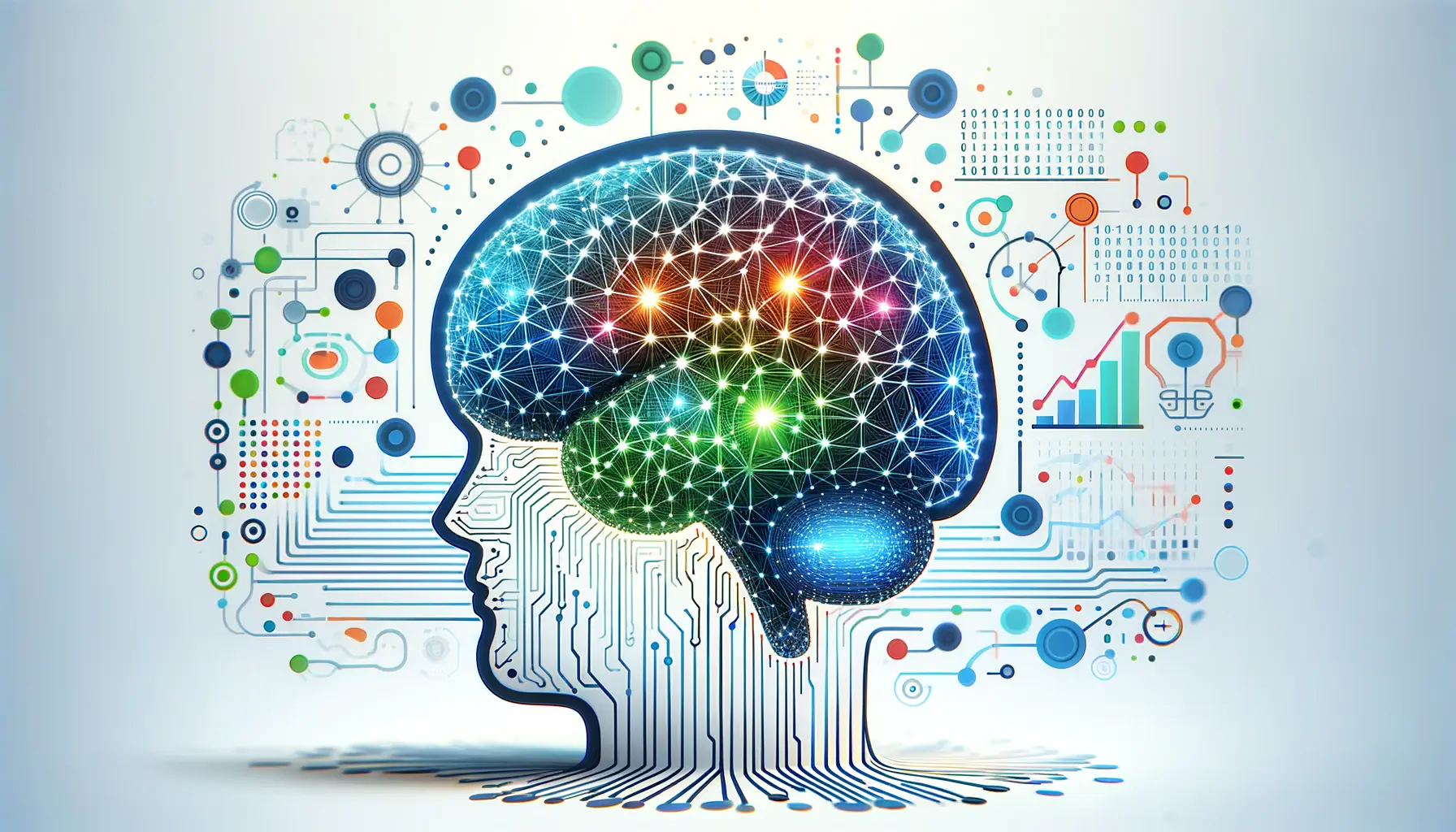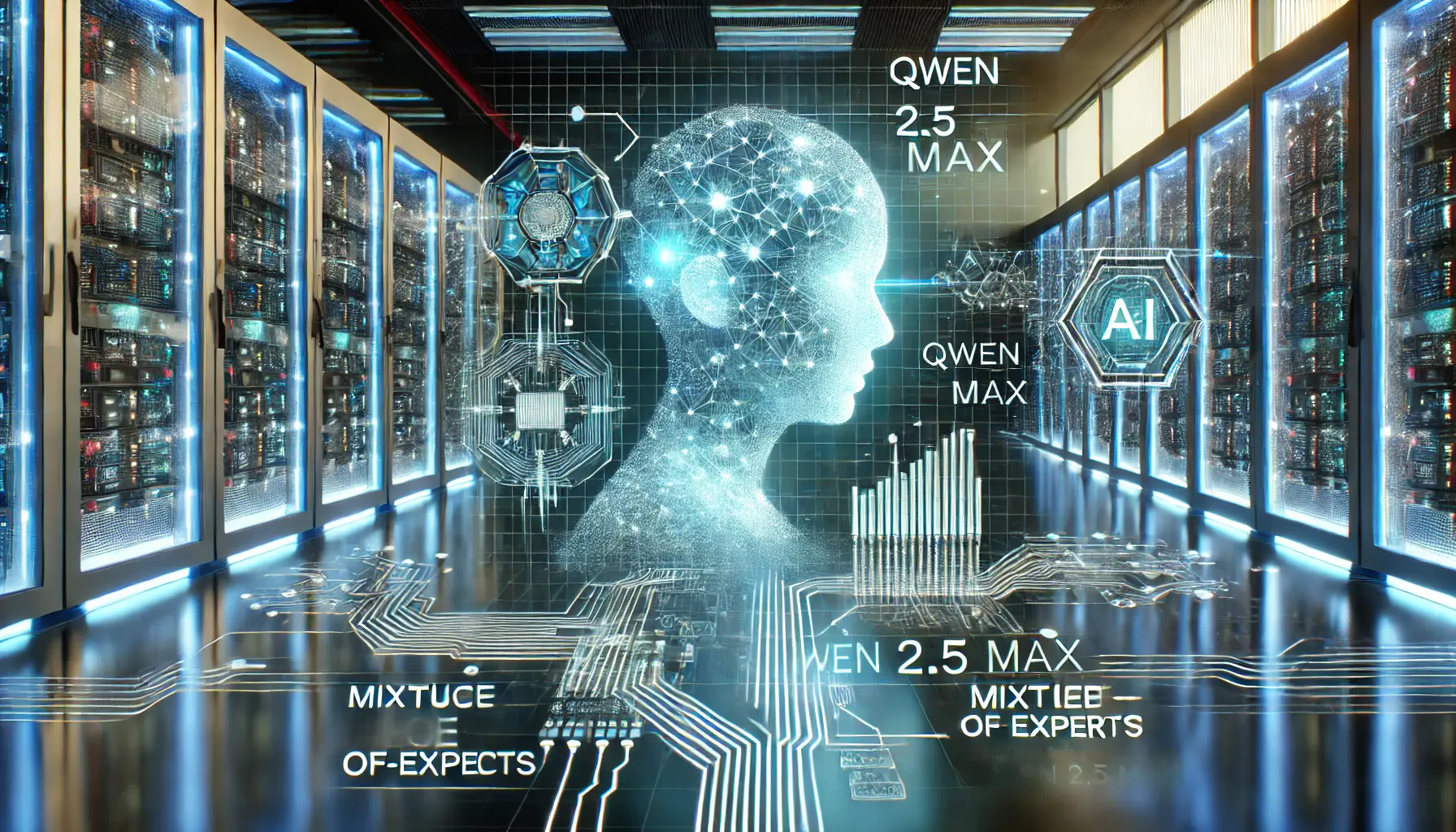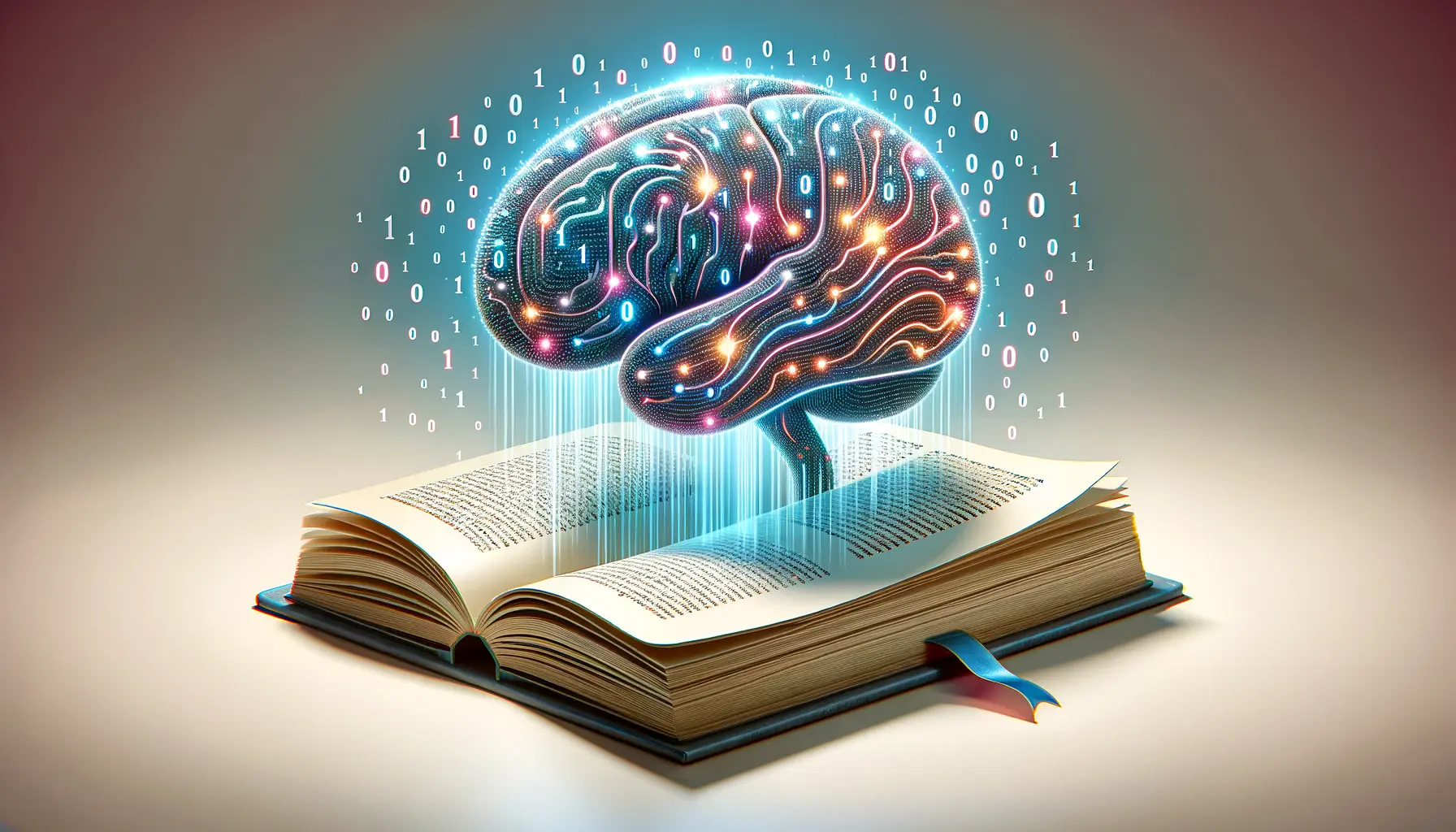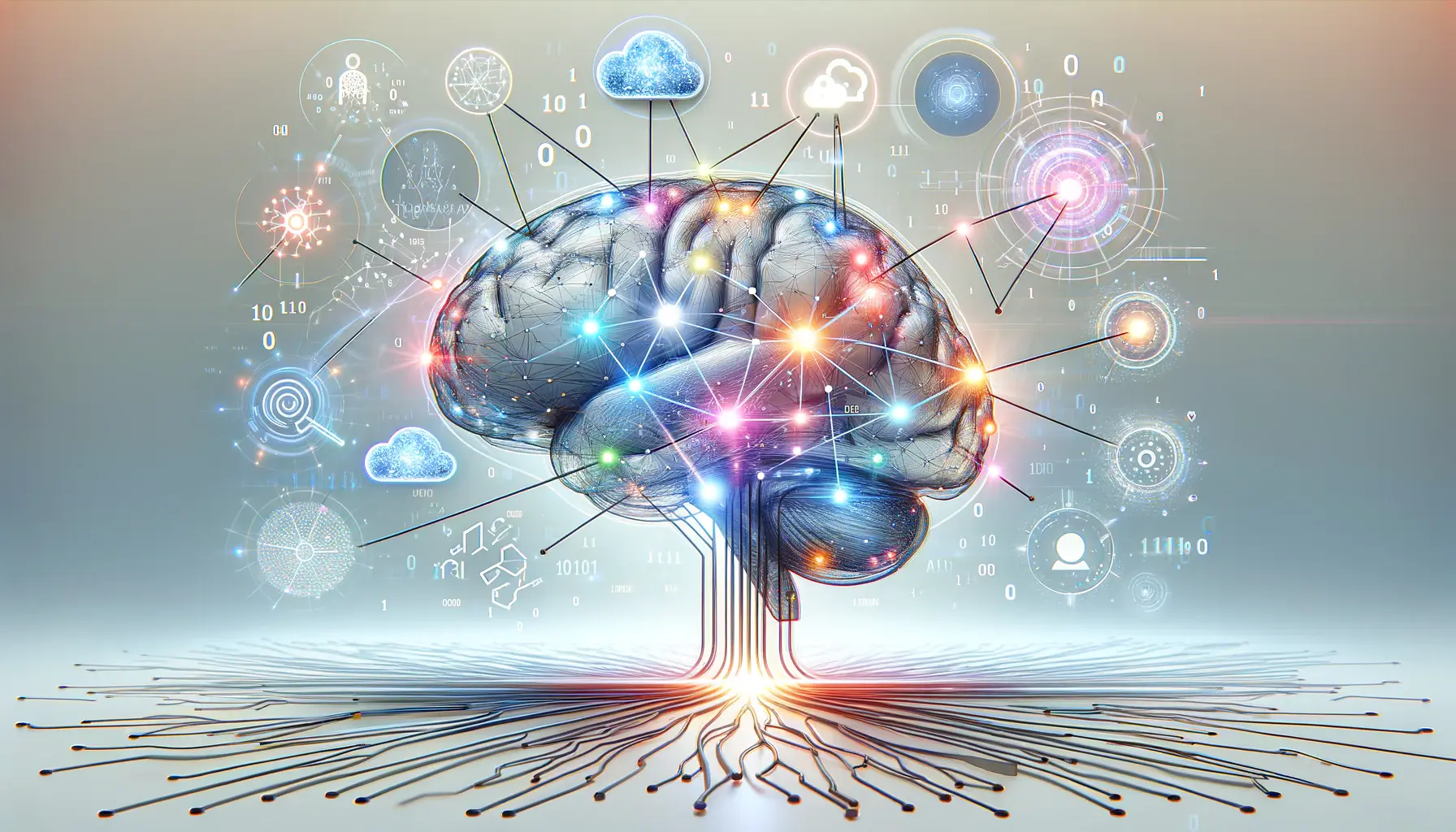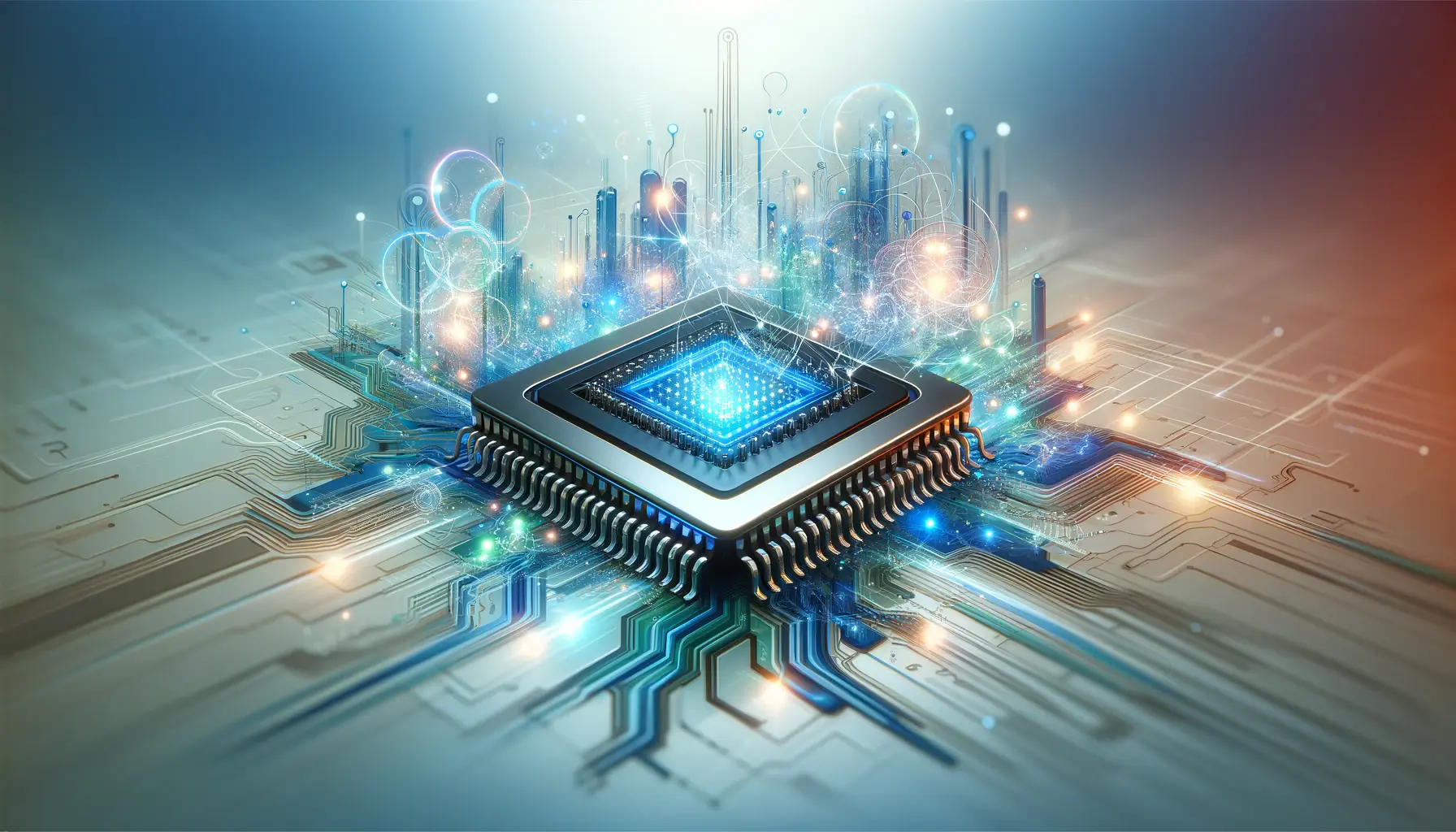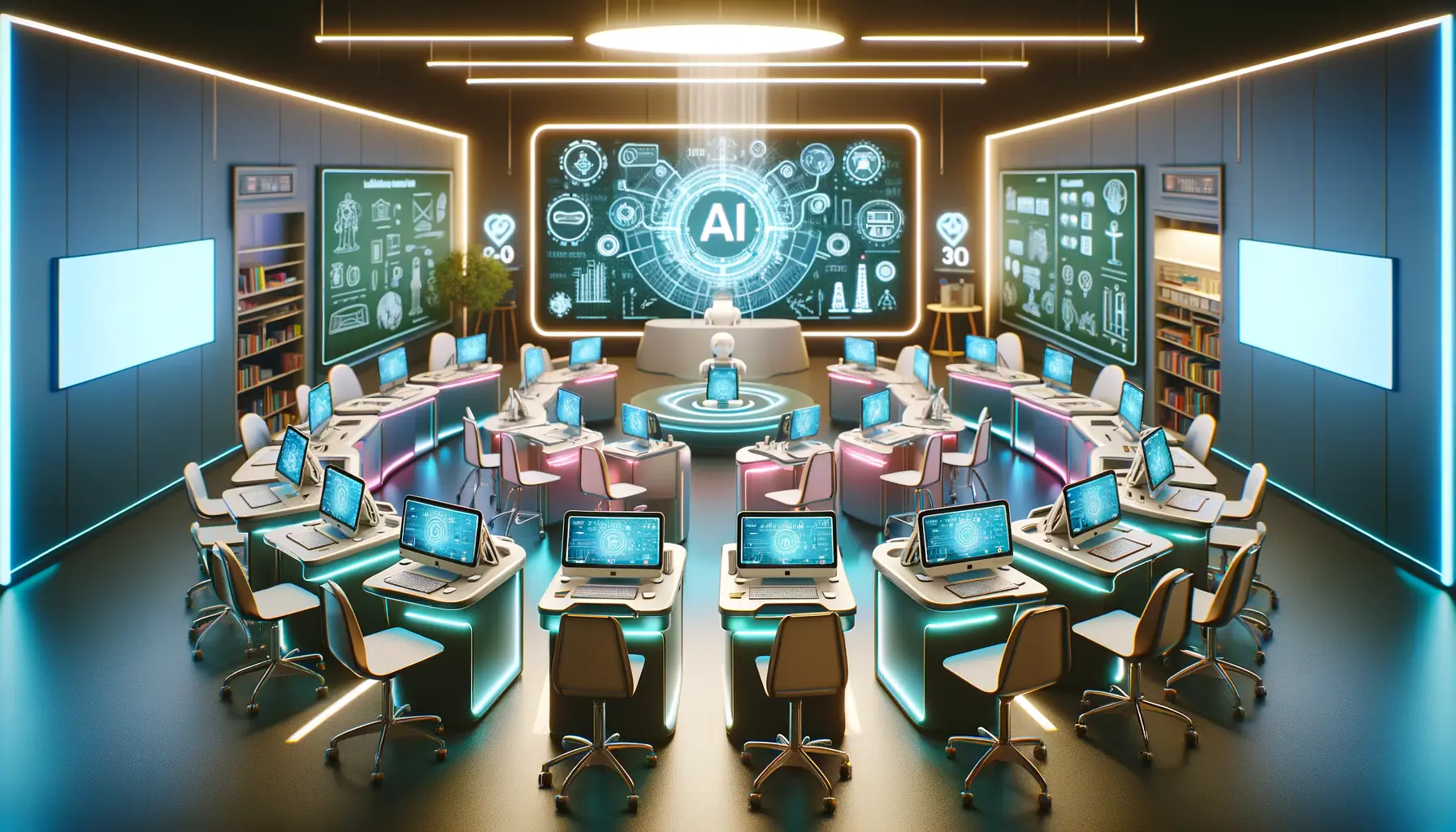The advent of artificial intelligence (AI) has revolutionized the way we interact with technology, pushing the boundaries of what machines can do.
Among the forefront of these advancements is Claude AI, a cutting-edge AI developed by Anthropic.
Claude AI stands out for its ability to understand and generate human-like text, offering insights and responses that closely mimic human thought processes.
This capability is not just a leap in technology; it’s a glimpse into the future of human-AI interaction.
Training Claude AI involves a complex, multifaceted process that ensures it can handle a wide range of tasks, from answering questions to generating content that feels genuinely human.
The core of Claude’s learning process is rooted in understanding human language, context, and the subtleties of communication.
This article delves into the intricate training mechanisms that empower Claude AI, exploring how it learns and adapts to provide accurate, relevant, and engaging responses.
- Understanding Claude AI’s Learning Foundation
- Techniques Behind Claude AI’s Training
- Challenges in Training Claude AI
- Integrating Claude AI into Applications
- Future Directions for Claude AI Development
- Enhancing User Experience with Claude AI
- Collaborative Efforts in Claude AI’s Evolution
- Forging Ahead: The Future of Claude AI and Its Impact
- Claude AI Training: Essential FAQs
Understanding Claude AI’s Learning Foundation
The foundation of Claude AI’s learning process is built upon advanced machine learning (ML) techniques, primarily focusing on natural language processing (NLP).
NLP enables Claude to decipher the complexities of human language, including grammar, syntax, and semantics.
This understanding is crucial for Claude to generate responses that are not only correct in content but also appropriate in tone and context.
At the heart of Claude’s training is a method known as supervised learning.
This approach involves feeding the AI large datasets of human-generated text, along with corresponding outputs that are considered correct or desirable.
Through repeated exposure to these datasets, Claude learns to predict the most appropriate response to a given input.
This process is augmented by reinforcement learning from human feedback (RLHF), where human trainers evaluate Claude’s responses and guide its learning process, helping it to refine its understanding and output.
Expanding Claude’s Knowledge Base
To ensure Claude remains up-to-date and relevant, its training includes continuous updates from a wide array of sources.
This ongoing learning process allows Claude to stay informed on current events, scientific advancements, and cultural trends.
By integrating new information into its knowledge base, Claude can provide responses that reflect the latest developments and societal shifts.
Another critical aspect of Claude’s training is the emphasis on safety and ethical considerations.
Developers have implemented safeguards to prevent the generation of harmful or biased content.
This includes filtering mechanisms and ethical guidelines that guide Claude’s response generation, ensuring that it aligns with values of respect, integrity, and inclusivity.
Claude AI’s training combines advanced NLP techniques with supervised learning and continuous updates, ensuring it provides accurate, relevant, and ethically sound responses.
Techniques Behind Claude AI’s Training
The training of Claude AI incorporates several sophisticated techniques that enhance its learning efficiency and effectiveness.
These methodologies are designed to optimize Claude’s understanding of human language and improve its ability to generate coherent, contextually relevant responses.
One of the cornerstone techniques used in Claude’s training is transfer learning.
This approach leverages pre-existing models trained on vast datasets to provide a foundational understanding of language.
From there, Claude is fine-tuned with specific datasets tailored to its intended applications, allowing it to adapt its responses to various contexts and requirements.
Key Training Techniques
- Supervised Learning: Claude is trained with datasets that include both the input (questions or prompts) and the desired output (answers or responses), enabling it to learn the correct associations between them.
- Reinforcement Learning from Human Feedback (RLHF): Human trainers provide feedback on Claude’s responses, which is used to adjust and improve its performance over time.
- Transfer Learning: Utilizing the knowledge gained from pre-trained models as a starting point, Claude is further refined with specific data to enhance its capabilities in targeted areas.
- Continuous Learning: Claude undergoes ongoing training to incorporate new information and adapt to changing contexts, ensuring its responses remain relevant and up-to-date.
These training techniques are complemented by a focus on diversity and inclusivity in the training data.
By exposing Claude to a wide range of languages, dialects, and cultural contexts, its developers aim to create an AI that is not only intelligent but also culturally aware and sensitive.
This aspect of Claude’s training is crucial for ensuring that it can serve a global user base effectively and respectfully.
Moreover, the training process includes rigorous testing and evaluation phases.
These phases are designed to identify and correct any inaccuracies, biases, or ethical concerns in Claude’s responses.
Through iterative refinement, Claude AI becomes more adept at understanding nuances and delivering responses that meet high standards of quality and ethical responsibility.
Incorporating diverse data and conducting thorough evaluations are essential steps in Claude AI’s training process, ensuring it delivers high-quality, ethically sound responses across various contexts.
Challenges in Training Claude AI
Training an AI system as sophisticated as Claude presents a unique set of challenges.
These obstacles not only test the limits of current technology but also raise important ethical and practical considerations.
Addressing these challenges is crucial for ensuring Claude AI can operate effectively and responsibly in a wide range of scenarios.
One of the primary challenges is managing the vast amount of data required for training.
Claude needs to process and learn from an enormous dataset to understand the nuances of human language and generate accurate responses.
Ensuring the quality and diversity of this data is paramount to avoid biases and inaccuracies in Claude’s outputs.
Data Quality and Bias Mitigation
- Data Diversity: Ensuring the training data encompasses a wide range of languages, dialects, and cultural contexts to avoid biases and improve Claude’s global applicability.
- Bias Detection and Correction: Implementing mechanisms to identify and mitigate biases in the training data, ensuring Claude’s responses are fair and unbiased.
- Quality Control: Maintaining high standards of data quality to prevent the introduction of errors or misleading information into Claude’s knowledge base.
Another significant challenge is the ethical considerations involved in AI training.
Claude must be taught to navigate complex moral landscapes and generate responses that adhere to ethical guidelines.
This involves not only technical solutions but also philosophical deliberations on the part of the developers.
Ethical Training and Safety Measures
- Developing Ethical Guidelines: Establishing clear ethical standards for Claude’s responses, ensuring they promote respect, inclusivity, and harm avoidance.
- Implementing Safety Mechanisms: Creating filters and safeguards to prevent Claude from generating harmful, offensive, or biased content.
- Continuous Monitoring: Regularly reviewing Claude’s outputs to identify and correct any ethical issues or deviations from established guidelines.
Addressing these challenges requires a concerted effort from a multidisciplinary team of experts, including data scientists, ethicists, and linguists.
Through their collaboration, the goal is to create an AI that not only excels in language understanding and generation but also operates within an ethical framework that respects human values and diversity.
Overcoming the challenges of data management and ethical training is essential for the development of a responsible and effective AI like Claude.
Integrating Claude AI into Applications
The integration of Claude AI into various applications showcases its versatility and the broad range of tasks it can perform.
From customer service bots to content creation tools, Claude’s advanced understanding of language and context makes it an invaluable asset across industries.
This section explores how Claude AI is being applied in real-world scenarios, demonstrating its impact and utility.
One of the key strengths of Claude AI is its adaptability.
Developers can fine-tune Claude for specific applications, ensuring that it meets the unique needs of each use case.
This customization process involves adjusting Claude’s responses to align with the tone, style, and requirements of different applications, from formal business communications to casual conversational interfaces.
Customer Service Enhancement
- Automated Support: Claude AI powers chatbots and virtual assistants that provide instant, 24/7 customer support, handling inquiries with precision and empathy.
- Personalization: By understanding customer preferences and history, Claude offers personalized recommendations and solutions, enhancing the customer experience.
Content Creation and Analysis
- Writing Assistance: Claude aids in content creation, offering suggestions for writing, editing, and content ideation, thereby streamlining the creative process.
- Data Analysis: It can analyze large volumes of text data, extracting insights and summarizing information, which is invaluable for research and reporting.
The implementation of Claude AI extends beyond these examples, touching on areas such as education, where it can provide tutoring and learning support, and entertainment, where it can generate creative content like stories or music.
The potential applications are as diverse as the capabilities of Claude AI itself, offering a glimpse into a future where AI assists in a wide array of human endeavors.
For businesses and developers, integrating Claude AI into applications involves considering factors such as user interface design, data privacy, and the ethical use of AI.
Ensuring that Claude operates in a manner that is both user-friendly and respectful of user data and privacy is paramount.
As Claude continues to evolve, its integration into applications will likely expand, offering new possibilities for enhancing productivity, creativity, and interaction in the digital age.
Claude AI’s adaptability and advanced language capabilities make it a powerful tool for enhancing applications across industries.
Future Directions for Claude AI Development
The ongoing development of Claude AI is driven by the pursuit of more sophisticated, human-like interactions between AI and users.
As technology advances, the potential for Claude to evolve and incorporate new capabilities grows, promising a future where AI can understand and respond to human needs with unprecedented accuracy and empathy.
One of the key areas of focus for future development is enhancing Claude’s understanding of context and subtlety in human communication.
This involves not just interpreting the literal meaning of words but also grasping the nuances, emotions, and intentions behind them.
Achieving this level of understanding requires advancements in natural language processing and machine learning, as well as more sophisticated models of human cognition and communication.
Improving Contextual Understanding
- Deep Learning Enhancements: Leveraging more advanced deep learning techniques to improve Claude’s ability to process and understand complex language patterns and contexts.
- Emotional Intelligence: Developing capabilities for Claude to recognize and respond to emotional cues, enhancing its interactions with users.
Expanding Application Horizons
- New Industries: Exploring opportunities to apply Claude in new sectors, such as healthcare for patient support or finance for personalized advice.
- Global Reach: Enhancing Claude’s multilingual capabilities to serve a wider global audience, breaking down language barriers and fostering international communication.
Another exciting direction for Claude AI is the integration of multimodal capabilities, allowing it to process and generate not just text but also images, audio, and video.
This would enable Claude to participate in a broader range of applications, from creating multimedia content to interpreting visual data for insights.
The ethical development of Claude AI remains a priority, with ongoing efforts to ensure that it operates within a framework that respects privacy, promotes inclusivity, and prevents harm.
As Claude evolves, its developers are committed to addressing the ethical implications of AI advancements, ensuring that Claude contributes positively to society.
The future of Claude AI lies in enhancing its understanding, expanding its applications, and ensuring its ethical development.
Enhancing User Experience with Claude AI
The user experience (UX) is at the forefront of Claude AI’s design and development philosophy.
A seamless, intuitive, and engaging interaction with Claude not only makes it more effective but also fosters trust and reliance among users.
Enhancing the UX involves continuous improvements in interface design, response accuracy, and personalization, ensuring that Claude AI meets and exceeds user expectations.
Personalization is a key aspect of enhancing UX with Claude AI.
By understanding and adapting to individual user preferences and behaviors, Claude can offer more relevant and tailored responses.
This level of customization makes interactions with Claude not only more efficient but also more enjoyable, as users feel understood and valued.
Interface Design and Interaction
- Intuitive Interfaces: Developing user-friendly interfaces that make interacting with Claude straightforward and pleasant, regardless of the user’s technical expertise.
- Interactive Feedback: Implementing mechanisms for users to provide feedback on Claude’s responses, enabling continuous learning and improvement based on user input.
Accuracy and Speed of Responses
- Response Quality: Ensuring that Claude’s responses are not only accurate but also contextually relevant, providing users with the information they need in a concise and understandable manner.
- Processing Speed: Improving Claude’s ability to process and respond to queries quickly, minimizing wait times and enhancing the overall user experience.
Another important element in enhancing UX is ensuring that Claude AI’s interactions are secure and respect user privacy.
Trust is essential in the relationship between users and AI systems, and Claude is designed with robust security measures to protect user data and ensure confidentiality.
As Claude AI continues to evolve, the focus on user experience will remain central.
By listening to user feedback, analyzing interaction data, and staying abreast of UX best practices, the developers of Claude AI aim to create an AI assistant that not only performs tasks effectively but also enriches the lives of its users.
Neglecting user feedback and privacy concerns can significantly detract from the effectiveness and trustworthiness of AI systems like Claude.
Collaborative Efforts in Claude AI’s Evolution
The evolution of Claude AI is not just a technical endeavor but also a collaborative one, involving partnerships between developers, researchers, users, and ethical bodies.
These collaborations are essential for driving innovation, ensuring responsible development, and maximizing the positive impact of Claude on society.
By working together, these diverse stakeholders contribute to the continuous improvement and ethical oversight of Claude AI.
Research partnerships play a crucial role in advancing Claude’s capabilities.
By collaborating with academic institutions and research organizations, Claude’s development team gains access to cutting-edge insights and methodologies in AI, machine learning, and natural language processing.
These partnerships help in refining Claude’s algorithms, enhancing its learning processes, and exploring new applications for the technology.
User Engagement and Feedback
- Community Feedback: Engaging with the user community to gather feedback on Claude’s performance, usability, and features, guiding future updates and improvements.
- User-Centric Development: Prioritizing developments that address user needs and preferences, ensuring that Claude remains relevant and valuable to its users.
Ethical Oversight and Social Responsibility
- Collaboration with Ethical Bodies: Working with ethics councils and regulatory bodies to ensure Claude’s development aligns with ethical standards and societal values.
- Transparency and Accountability: Maintaining open communication about Claude’s capabilities, limitations, and the principles guiding its development, fostering trust and accountability.
The collaborative efforts behind Claude AI underscore the importance of a multidisciplinary approach to AI development.
By incorporating diverse perspectives and expertise, the team behind Claude ensures that the AI not only advances in technical sophistication but also operates in a manner that is ethical, user-friendly, and socially beneficial.
As Claude AI continues to evolve, these collaborative efforts will remain key to its success.
Whether it’s through enhancing its core technologies, exploring new applications, or addressing ethical and social considerations, the collective input and expertise of all stakeholders will shape the future of Claude AI.
The collaborative nature of Claude AI’s development is crucial for its innovation, ethical integrity, and societal impact.
Forging Ahead: The Future of Claude AI and Its Impact
The journey of Claude AI from its inception to its current state is a testament to the remarkable strides made in the field of artificial intelligence.
Through its sophisticated training mechanisms, Claude AI has demonstrated an unparalleled ability to understand and generate human-like text, offering insights and responses that closely mimic human thought processes.
This evolution is not just a leap in technology; it’s a bridge towards a future where human-AI interaction becomes more seamless and intuitive.
The Path Forward for Claude AI
As we look to the future, the potential for Claude AI to further revolutionize industries, enhance user experiences, and contribute to societal advancement is immense.
The continuous improvement in its learning algorithms, coupled with the integration of ethical guidelines and user feedback, positions Claude AI as a leading force in the push towards more intelligent, responsive, and responsible AI systems.
The collaborative efforts behind its development ensure that Claude remains at the cutting edge of AI technology, reflecting the collective aspirations and ethical standards of society.
Impact on Society and Industries
The implications of Claude AI’s advancements extend far beyond the technical realm.
In industries ranging from customer service to content creation, education, and healthcare, Claude’s capabilities can lead to significant efficiencies, personalized experiences, and new opportunities for innovation.
Moreover, by addressing the challenges of data bias and ethical considerations, Claude AI sets a precedent for the development of AI technologies that are not only powerful but also principled and inclusive.
- The democratization of AI, making advanced technology accessible to a broader range of users and industries.
- Enhanced global communication through improved language models, breaking down barriers and fostering understanding.
- The potential for AI to serve as a catalyst for creative and intellectual growth, augmenting human capabilities rather than replacing them.
In conclusion, the evolution of Claude AI embodies the dynamic interplay between technological innovation and human values.
As Claude continues to learn and grow, it promises to not only transform how we interact with machines but also how we envision the future of human potential.
The journey of Claude AI is far from over; it is just beginning, with endless possibilities on the horizon.
Claude AI Training: Essential FAQs
Explore the most common inquiries about Claude AI’s training process and capabilities.
Claude AI continuously learns through advanced machine learning techniques, incorporating new data and feedback to refine its responses.
Yes, Claude AI is designed to understand and generate responses in multiple languages, enhancing its global applicability.
Claude AI is developed by Anthropic, focusing on unique training methods, and is not directly based on GPT-3.
Through rigorous training and continuous updates, Claude AI maintains high accuracy by staying informed on current information and contexts.
Yes, Claude AI is capable of engaging in natural and dynamic conversations, mimicking human-like interactions.
Claude AI’s training emphasizes safety, ethical considerations, and human feedback, setting it apart from other AI models.
Claude’s training includes data up to a recent cutoff, with mechanisms to incorporate ongoing developments and information.
Claude AI finds applications in customer service, content creation, education, and more, thanks to its versatile training.
